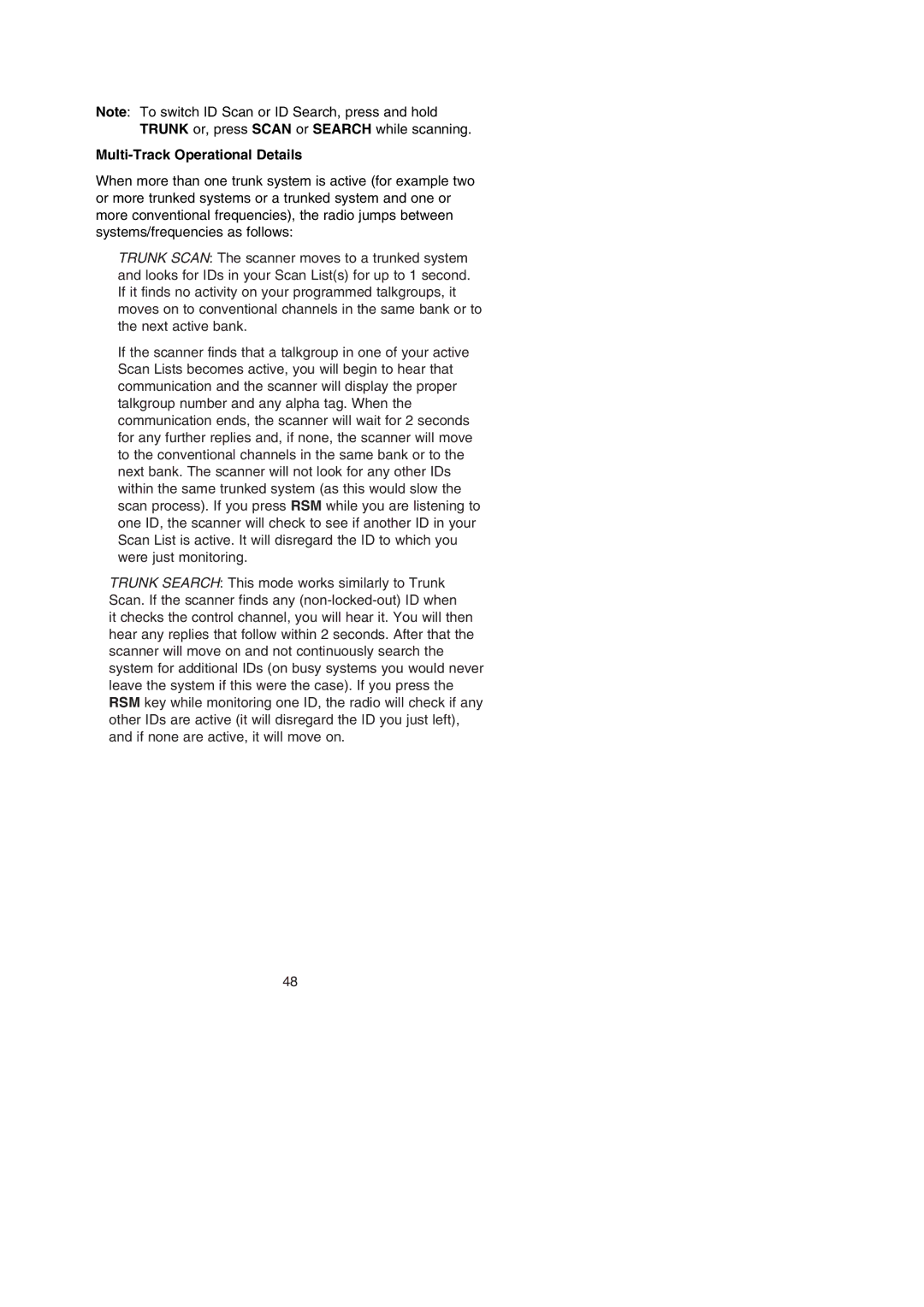
Note: To switch ID Scan or ID Search, press and hold TRUNK or, press SCAN or SEARCH while scanning.
Multi-Track Operational Details
When more than one trunk system is active (for example two or more trunked systems or a trunked system and one or more conventional frequencies), the radio jumps between systems/frequencies as follows:
TRUNK SCAN: The scanner moves to a trunked system and looks for IDs in your Scan List(s) for up to 1 second. If it finds no activity on your programmed talkgroups, it moves on to conventional channels in the same bank or to the next active bank.
If the scanner finds that a talkgroup in one of your active Scan Lists becomes active, you will begin to hear that communication and the scanner will display the proper talkgroup number and any alpha tag. When the communication ends, the scanner will wait for 2 seconds for any further replies and, if none, the scanner will move to the conventional channels in the same bank or to the next bank. The scanner will not look for any other IDs within the same trunked system (as this would slow the scan process). If you press RSM while you are listening to one ID, the scanner will check to see if another ID in your Scan List is active. It will disregard the ID to which you were just monitoring.
TRUNK SEARCH: This mode works similarly to Trunk Scan. If the scanner finds any
48
